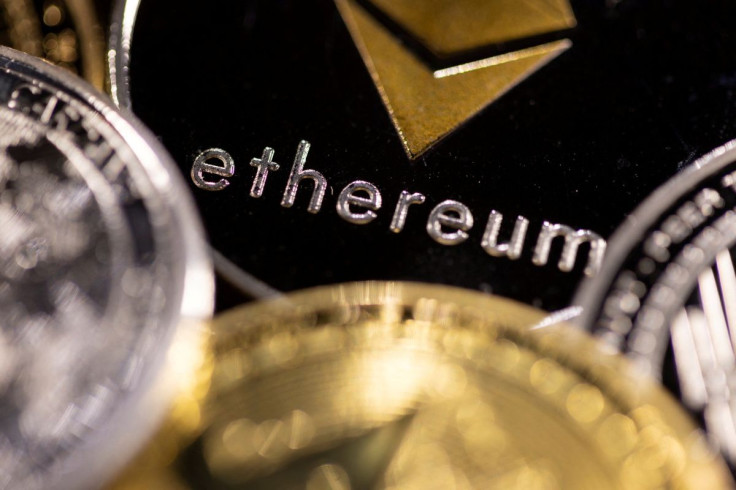India Crypto Exchanges See Funds Squeeze As Popular Payment Mechanism Blocked: Industry Players Demand Regulatory Clarity
KEY POINTS
- Industry players demand more regulatory clarity on crypto payments
- Many exchanges have abruptly stopped UPI transactions
- Trading volumes at Indian exchanges have been dropping since April 1
- "The current scenario very hostile for investors and startups": Shivam Thakral, BuyUcoin CEO
The lack of regulatory clarity in India is expected to further depress the already dropping trading volumes in the country's cryptocurrency exchanges, industry insiders said, as they demanded more clarity on crypto payments from the government and regulators.
This came after investors in the country found they could not pay for crypto transactions as many exchanges disabled support for payments made via the country's popular United Payments Interface (UPI). The exchanges' action following a statement by the National Payments Corporation of India (NPCI) controlled by India's central bank, that it was "not aware of any crypto exchange using UPI." The RBI, India's central bank, is leery of crypto, citing its volatility.
The NPCI’s statement came in response to Coinbase’s claim that its users will be able to use UPI for buying and selling crypto on its platform.
UPI is a highly convenient mode of financial transaction in India, connecting banks and enabling customers to make digital payments quickly. Most crypto investors in the country have been using it for peer-to-peer transactions that side-step scrutiny by banks and higher fees. But such P2P transactions, which are between the users and not from a bank account directly to the exchange, are not easy to track and, after the NPCI's April 7 statement, crypto exchanges in India scrambled to block them to avoid antagonizing the RBI.
"Crypto exchanges are doing away with the UPI feature as no one wants to clash with RBI," Dileep Seinberg, founder and CEO of crypto messenger platform MuffinPay, told International Business Times.
That led to a quick drop in trading volumes at Indian exchanges, which were already down steeply after the implementation of the crypto tax beginning April 1.
Industry insiders that IBT spoke to say the lack of regulatory clarity is becoming a barrier for the crypto industry, which is at a nascent stage of growth in the country. The Indian government introduced taxation on digital assets in its 2022-23 annual budget, leading to optimism in the industry that it is on a path to regulation and clarity. But since then the country's Finance Minister Nirmala Sitharaman has said the tax doesn't mean the industry has been legalized, injecting gloom into the industry and roiling it.
Shivam Thakral, CEO of Indian exchange BuyUcoin, said, "We have seen a sharp decline in volumes (over 60-70%) compared to last year since April 1, but clear and supportive regulatory environment for crypto in India will lead to a new inflow of funds from accredited institutional investors along with fostering safe and secure retail trading."
"Lack of clarity and confusion can hamper all major innovations and drastically reduce employment generation through the nascent crypto ecosystem of India," he added.
Raj Kapoor, chief growth adviser at Acryptoverse, said that although the initial regulatory mandate for crypto in India has been clarified significantly, "there seems to be enough wriggle room for interpretation as is evident from the reactions after the NPCI’s comments."
These gray areas have led to crypto exchanges becoming "overcautious" in order not antagonize the regulators, he added.
"The falling volumes and the 30% tax are sure to keep people away and we see an advent of “crypto summers” walking in … And a possibility of flight of funds from our shores. We need complete clarity as there is still plenty of room for interpretation and too many gray areas, not to mention the fear of second-guessing — what next??" Kapoor told International Business Times.
Piyush Gupta, founder of crypto firm PolyTrade, said the current scenario will hamper trading at Indian exchanges and investors may just move to foreign exchanges.
"The trading won't stop as people are aware of the potential of crypto and blockchain technology, which is why countries like the UK and the U.S. want to be the first to get into it," Gupta said.
BuyUcoin's Thakral pointed out: "Global crypto players that are planning to enter Indian markets will face a major barrier to entry due to the lack of formal banking/payment channels for crypto trading in India; besides that they’ll also face stiff competition from established Indian crypto exchanges."
"The current scenario of banking and payment channels for crypto trading is very hostile for investors and startups, both. If we’re going to introduce a tax regime along with upcoming regulations for crypto investments, then we’ll need a complete overhaul in the existing relationships between banking channels and crypto exchanges," he added.

© Copyright IBTimes 2024. All rights reserved.






















